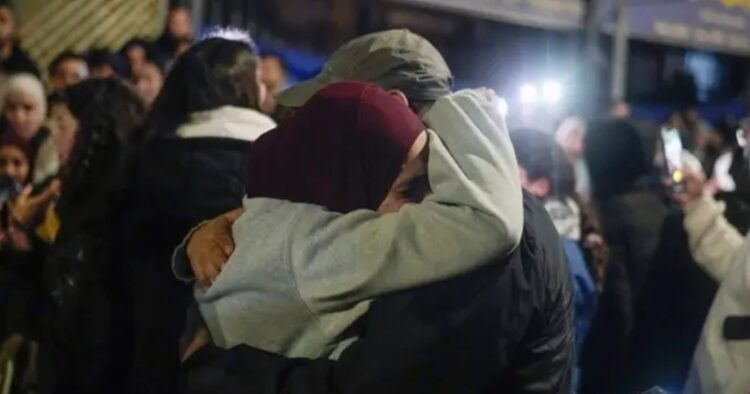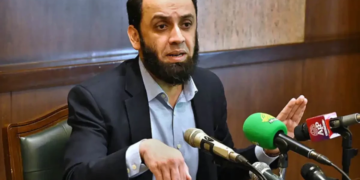Three Israeli hostages, Iair Horn, Sagui Dekel-Chen, and Sasha Troufanov, are set to return from Gaza on Saturday following mediation efforts by Egypt and Qatar. Their release comes as part of a deal between Israel and Hamas that has sustained a fragile ceasefire for nearly a month.
In exchange, 369 Palestinian prisoners and detainees will be freed. The agreement alleviates concerns that the truce could collapse, ensuring a temporary pause in hostilities.
Dekel-Chen, a US-Israeli citizen, Troufanov, a Russian-Israeli, and Horn, whose brother Eitan was also abducted, were taken from Kibbutz Nir Oz on October 7, 2023, when Hamas terrorists launched a large-scale attack on Israeli communities near the Gaza Strip. Their release is part of a broader hostage exchange that has been a focal point of negotiations in recent weeks.
Fragile Truce and Mounting Tensions
The ceasefire, which has lasted for 42 days, faced a significant threat when Hamas accused Israel of blocking humanitarian aid from entering Gaza, refusing to release more hostages, leading to heightened tensions.
Israel denied the accusations and, in turn, accused Hamas of failing to uphold the agreement. The Israeli military put its forces on high alert and called up reservists, signaling readiness to resume military operations if necessary.
Public sentiment in Israel has been divided. The release of three hostages last week, who appeared emaciated and reported mistreatment, fueled public anger. However, mass protests also emerged, urging the Israeli government to continue the hostage negotiations and secure the return of all captives.
Adding to the uncertainty, US President Donald Trump proposed relocating Palestinians out of Gaza and placing the enclave under US administration for redevelopment. The suggestion was swiftly rejected by Palestinian groups and Arab nations, further complicating the geopolitical landscape surrounding the conflict.
Gaza in Ruins and Humanitarian Crisis
Hamas previously agreed to release 33 Israeli hostages—women, children, and elderly men—in exchange for hundreds of Palestinian detainees. The six-week truce was designed to facilitate further negotiations, including the withdrawal of Israeli forces and a potential end to hostilities.
Before Saturday’s expected release, 16 Israeli hostages and five Thai nationals had already been freed, leaving 76 captives still in Gaza. It is believed that only about half of them remain alive.
Gaza is now facing a severe humanitarian crisis. The war has left the enclave in ruins, with widespread destruction, critical shortages of food, water, and electricity, and tens of thousands without shelter. The ceasefire was meant to allow the entry of humanitarian aid, but disputes over supply restrictions have intensified.
Hamas claimed that Israel blocked essential materials, such as tents and temporary shelters, leaving many exposed to the winter cold. Israel, however, insists that thousands of aid trucks have been allowed in and accuses Hamas of violating the agreement.
The conflict began after Hamas-led attacks on Israeli communities on October 7, 2023, killed approximately 1,200 people and resulted in over 250 hostages being taken, according to Israeli sources. In response, Israel launched a military campaign that has since killed over 48,000 Palestinians, according to figures from the Palestinian Health Ministry. The ongoing devastation has displaced the majority of Gaza’s population, underscoring the urgent need for a lasting resolution.

















Comments